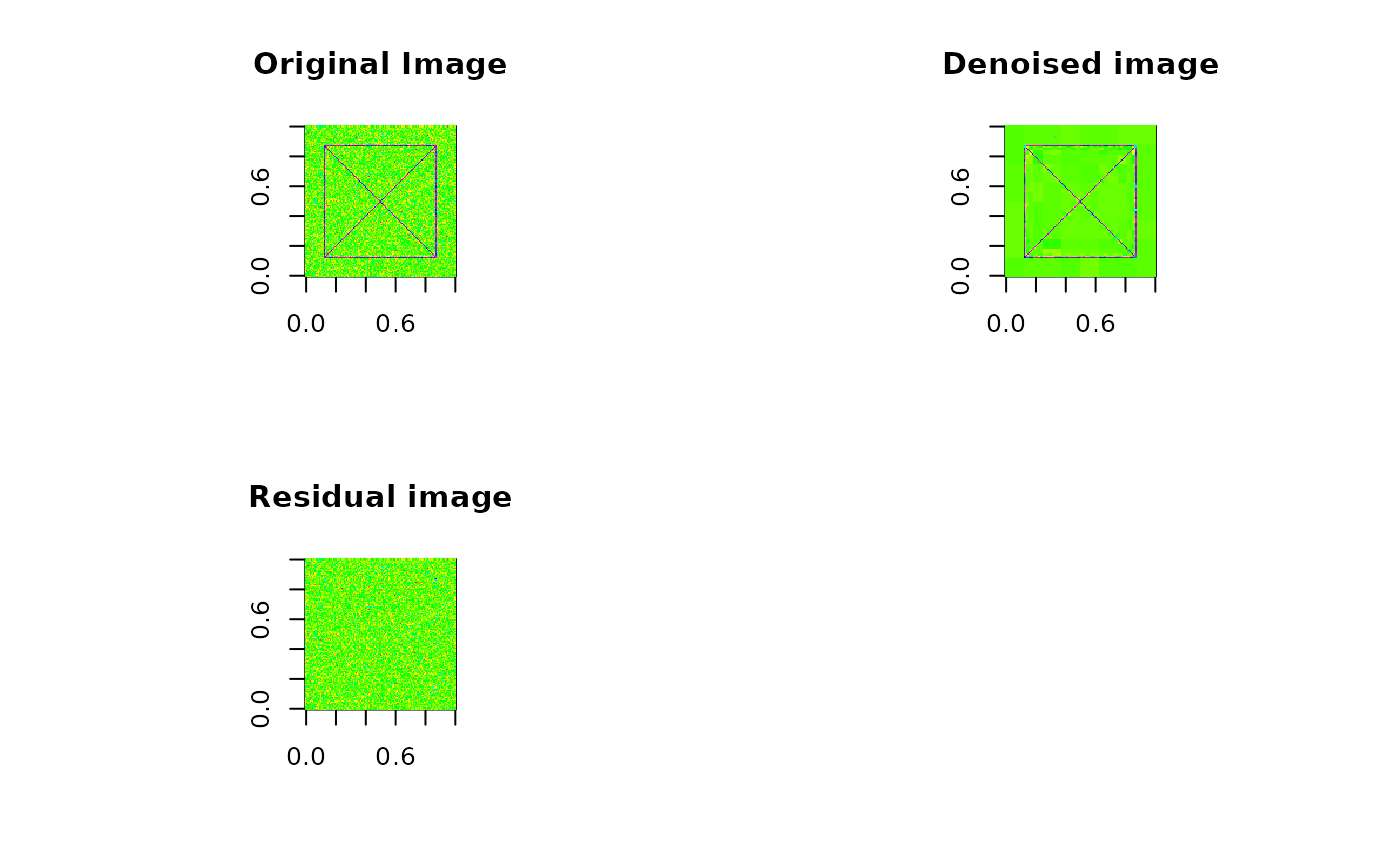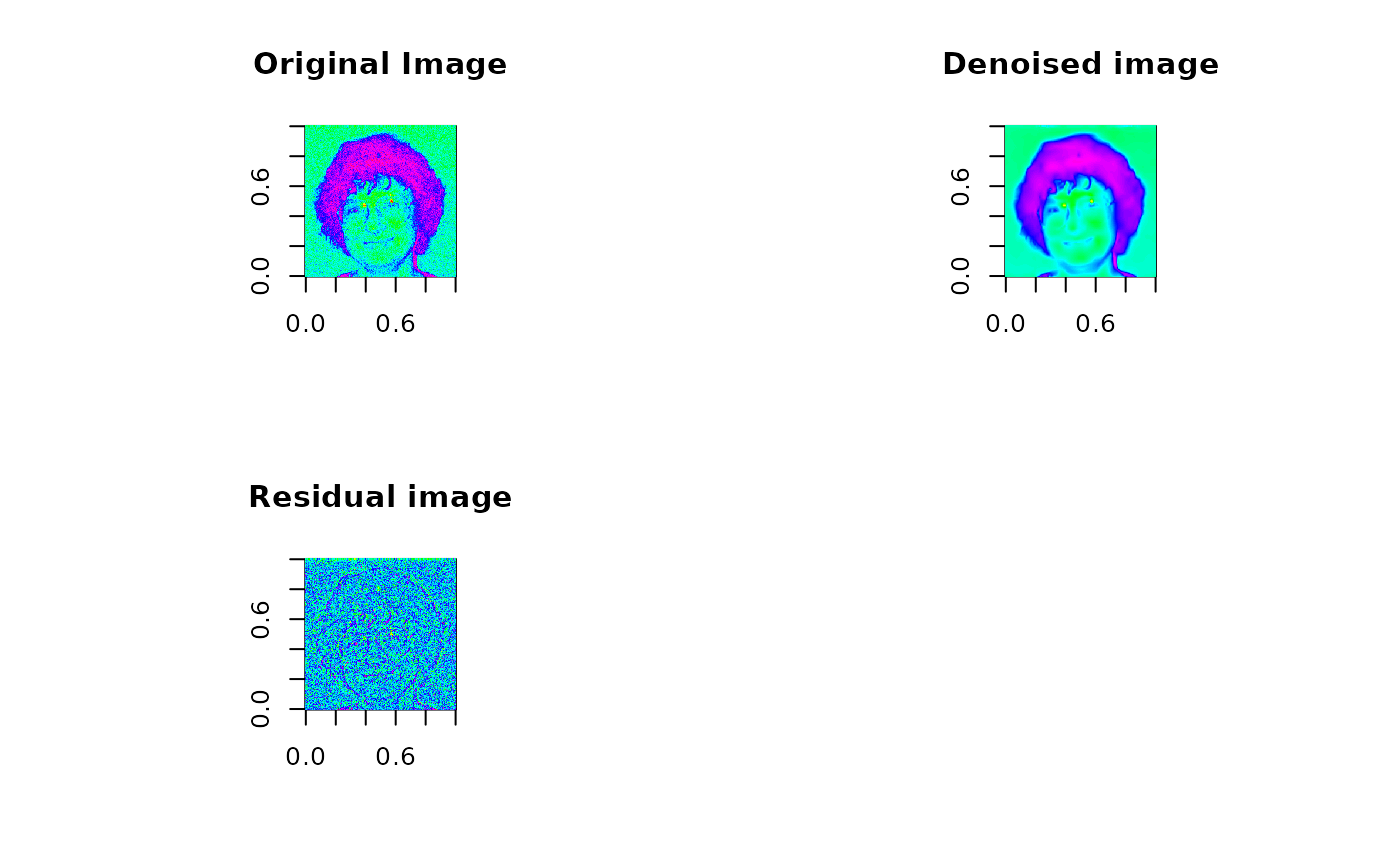Denoise an Image via the 2D Discrete Wavelet Transform
denoise.dwt.2d.RdPerform simple de-noising of an image using the two-dimensional discrete wavelet transform.
denoise.dwt.2d(x, wf = "la8", J = 4, method = "universal", H = 0.5,
noise.dir = 3, rule = "hard")
denoise.modwt.2d(x, wf = "la8", J = 4, method = "universal", H = 0.5,
rule = "hard")Arguments
| x | input matrix (image) |
|---|---|
| wf | name of the wavelet filter to use in the decomposition |
| J | depth of the decomposition, must be a number less than or equal to \(\log_2(\min\{M,N\})\) |
| method | character string describing the threshold applied, only
|
| H | self-similarity or Hurst parameter to indicate spectral scaling, white noise is 0.5 |
| noise.dir | number of directions to estimate background noise standard deviation, the default is 3 which produces a unique estimate of the background noise for each spatial direction |
| rule | either a |
Value
Image of the same dimension as the original but with high-freqency fluctuations removed.
Details
See Thresholding.
References
See Thresholding for references concerning de-noising in
one dimension.
See also
Author
B. Whitcher
Examples
## Xbox image
data(xbox)
n <- NROW(xbox)
xbox.noise <- xbox + matrix(rnorm(n*n, sd=.15), n, n)
par(mfrow=c(2,2), cex=.8, pty="s")
image(xbox.noise, col=rainbow(128), main="Original Image")
image(denoise.dwt.2d(xbox.noise, wf="haar"), col=rainbow(128),
zlim=range(xbox.noise), main="Denoised image")
image(xbox.noise - denoise.dwt.2d(xbox.noise, wf="haar"), col=rainbow(128),
zlim=range(xbox.noise), main="Residual image")
## Daubechies image
data(dau)
n <- NROW(dau)
dau.noise <- dau + matrix(rnorm(n*n, sd=10), n, n)
par(mfrow=c(2,2), cex=.8, pty="s")
 image(dau.noise, col=rainbow(128), main="Original Image")
dau.denoise <- denoise.modwt.2d(dau.noise, wf="d4", rule="soft")
image(dau.denoise, col=rainbow(128), zlim=range(dau.noise),
main="Denoised image")
image(dau.noise - dau.denoise, col=rainbow(128), main="Residual image")
image(dau.noise, col=rainbow(128), main="Original Image")
dau.denoise <- denoise.modwt.2d(dau.noise, wf="d4", rule="soft")
image(dau.denoise, col=rainbow(128), zlim=range(dau.noise),
main="Denoised image")
image(dau.noise - dau.denoise, col=rainbow(128), main="Residual image")
